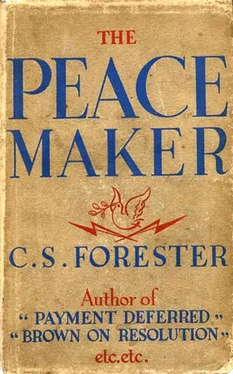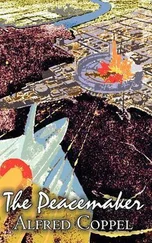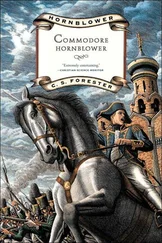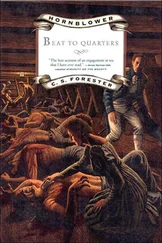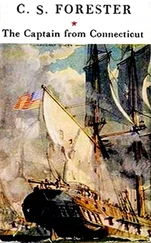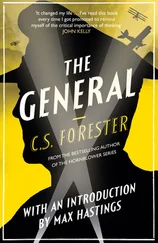The Peacemaker by C. S. Forester
Doctor Edward Pethwick, mathematics and physics master at the Liverpool School, was sitting at a window in his room adjoining the senior physics laboratory. He had laid aside the calculation on which he was engaged, in order to watch the proceedings in the playing fields beneath the window. The Officers' Training Corps was coming on parade in readiness for a rehearsal of tomorrow's review by a general from the War Office. Today they were being reviewed merely by a general who did not use the title—Mr. Henry Laxton, C.M.G., D.S.O., M.A., Headmaster of the Liverpool School, who had risen during the war from the rank of captain in the Territorial Army to the command of a brigade, and when the war was over had returned to the teaching profession and had accepted this headmastership. It gave the school a decided prestige to have at its head a brigadier-general, because even though he punctiliously never used the title everyone who mattered knew that it was his by right.
At the moment his son, Henry Laxton the Second, Captain of the School and Sergeant of No. 3 Platoon, was bringing his detachment on to the parade-ground. He walked with a swagger which was an improvement on that of the regular sergeant-major's; he handled his silver-topped cane to the manner born; and the long bayonet which swung on his hip rhythmically with his stride was the finishing touch to his soldierly appearance.
Pethwick saw his dark eyes beneath his cap peak gauging carefully, but without hurry, the distance between the head of his column and the space where No. 3 platoon should be. Then young Laxton shouted the order—although "shout" is too barbaric a word for that beautifully modulated word of command.
"At the halt, on the left form—platoon."
No. 3 platoon came up into line exactly where it ought to have been, and stood rigid.
"Order—hype. Standa—tease."
The fifty rifles came down like one; the fifty left feet made only one sound as they were pushed out.
Pethwick, watching from the window, knew he could never have done anything like that. His voice would have risen to a squeak with excitement. He would have misjudged the distance hopelessly, so that the little devils at the head of the platoon would have bumped delightedly into the line ahead of them. He could not conceive of himself ever having fifty boys under such perfect control as to order arms and stand at ease without a fidget or a wriggle anywhere along the line.
Pethwick was conscious of a vague envy of young Laxton. He envied him the calm self-confidence of his carriage, his coolness, and his efficiency in action. He ranked young Laxton in his mind with all the people whom he described to himself—drawing upon a vague memory of Fiona Macleod's Immortal Hour—as "the Lordly Ones," people who could do things in front of other people without fumbling at their neckties.
Pethwick tried to comfort himself by thinking of things which he could do with ease and which were quite beyond young Laxton's capacity; only that very morning in class Laxton had come down badly in attempting to demonstrate Cayley's proof of the Binomial Theorem, which to Pethwick was literally no more abstruse than the addition of two and two. But there was somehow no comfort in the memory, for Pethwick was of such an unfortunate mental composition as to find no pleasure in the malicious contemplation of other people's difficulties.
Down on the parade-ground the regular sergeant-major and young Laxton had posted the markers—this was a very formal parade, indeed.
"Markers, steady."
The drums rolled as the lines dressed. The officers were on parade now, Pethwick's colleagues all of them, Summers with his medals, Malpas and Stowe trim in their new uniforms, Hicks still tugging at his gloves—he, too, was not of the Lordly Ones. Swords were drawn and glittered in the sun. It was rare indeed for swords to be seen in the playing fields of the Liverpool School. The khaki ranks stood fast, motionless. The very atmosphere seemed charged with a tension which told that the great moment of the day was at hand.
Then the doors of the school hall towards which the parade was facing flew open, and the headmaster stepped out. Summers bawled an order. The band played a lively march—making a horrible hash of the opening bars—and the swords flashed as they came to the salute, and the rifles came to the present as though actuated by one single vast machine.
Mr. Laxton's appearance fully justified all this ceremony. He was not in uniform—after all, this was only a rehearsal of tomorrow's review—but by a happy thought he was wearing morning clothes, superb in cut and style, setting just the right note of informal formality. He stood with his yellow gloves and silver-mounted stick in one hand and his silk hat raised in the other during the general salute, and then he came forward, while Summers hastened to meet him, to walk along the lines in formal inspection.
Dr. Pethwick continued to watch and suffer. He knew that if he were to put on a morning coat he would look like a seedy shop-walker.
And then Dr. Pethwick's heart gave a little kick inside his ribs. Mr. Laxton was now standing at the flagstaff which marked the saluting-point, and by his side was a young woman in a brown summer frock, talking animatedly. It was his daughter Dorothy, whom Dr. Pethwick considered to be the sweetest, most beautiful, most lovely of all the Lordly Ones.
Even leaving out of account the fact that Dr. Pethwick was a married man, it is remarkable that he had come to differentiate between Lordly Ones to such an extent that the sight of one particular one of them a hundred yards away should send up his pulse-rate, while none of the others affected him in any such manner. Yet if Dr. Pethwick had been able to put his feelings into words, he would have said that Dorothy Laxton was a fountain of sweetness, and that within the circle of Dorothy Laxton's arms (although he had no personal experience) lay all the bliss and rest and happiness of any conceivable paradise. Even looking at her over the playing-fields brought a pain into his breast—a pain in which he found an odd pleasure.
Pethwick gulped and looked away, allowing his mind, for the first time for a quarter of an hour, to revert to the calculation which half covered the large sheet of paper before him. The expression he was dealing with there included half the Greek alphabet and half the English, as well as eight or nine other symbols which only come to light in mathematical textbooks. Even Dr. Pethwick had found himself floundering a little helplessly at the moment when young Laxton had marched up No. 3 platoon to distract him.
When the Encyclopedia Britannica writes its little biographies of mathematicians and similar odd people, it is generous enough in its praise of their achievements. Sometimes, indeed, it even condescends to some small detail of their private lives, saying, perhaps, "for the next twenty years he was happily occupied as Professor of Mathematics at So-and-So University," and sometimes even, it goes so far as to give a vague hint of "domestic trouble, or illness." But from those poor data it is hard to conjure up a complete picture of the life of such a man as Pethwick, of the troubles and distractions caused him by such things as far unconnected with mathematics as his strong views upon disarmament and the facts that he loved his headmaster's daughter, and that a silk hat did not suit his looks, and that his wife was a slovenly and malicious drunkard, or even that the Officers' Training Corps should choose to hold a rehearsal of a review under the windows of his room, in the afternoon following a morning when Vb had been badly behaved and the Upper Sixth had been worse.
Perhaps all these dissimilar ingredients contributed to the sigh with which Pethwick picked up his pen again in his long, beautiful fingers and addressed himself to the tangle of neat symbols while, outside, the band blared and the Officers' Training Corps plunged into the complicated wheel which was to get them into position for the march past.
Читать дальше
